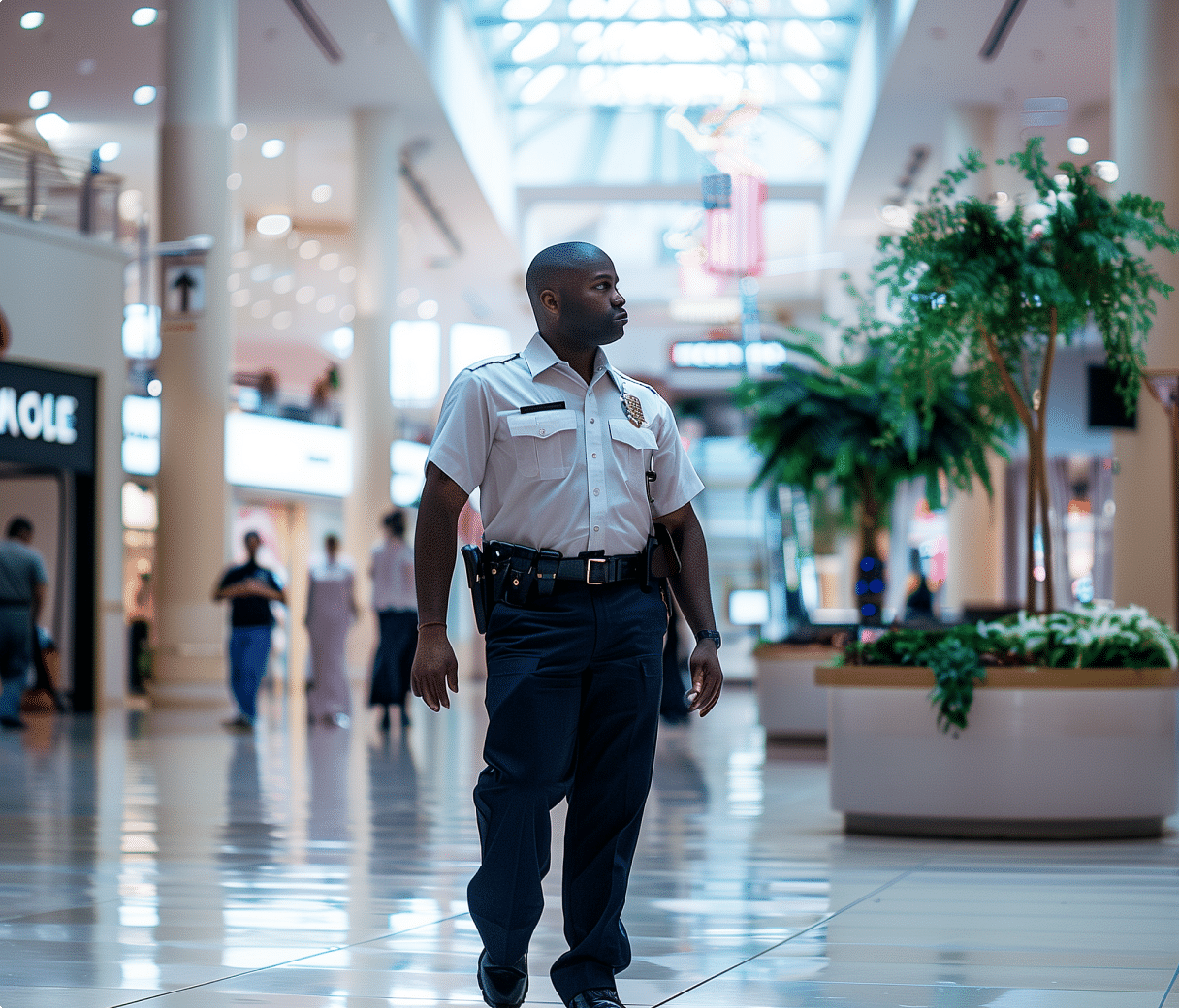Level Three | Commission
Armed Security Guard
Our Armed Commissioned Guard training course provides individuals with advanced skills and knowledge necessary for armed security positions. This rigorous program covers critical topics and practical training to ensure trainees are fully prepared to handle high-stakes security scenarios with professionalism and precision.
For questions about the courses, you can reach us by email, phone or the contact form below.
[email protected] 1-(855) 4-NXTLVL (Option 2)
Course Outcome:
Master Advanced Security Practices and Preparedness for Armed Protection
Advanced Security Fundamentals
Understanding the role and responsibilities of an armed security guard and advanced security industry standards.
Firearms Training and Safety
Comprehensive firearm safety and handling procedures. Live-fire training sessions to ensure proficiency and accuracy.
Legal and Ethical concerns
In-depth study of security laws and regulations specific to armed guards. As well as responsibilities of armed security personnel.
Advanced Observation and Reporting
Enhanced techniques for effective observation and surveillance, Advanced methods for documenting incidents.
Emergency Response Procedures
Advanced first aid and tactical medical training. Fire safety, evacuation protocols, and active shooter response.
Conflict Resolution & De-escalation
Techniques for managing and defusing high-risk situations & negotiation strategies for armed encounters.
Access Control and Patrolling
Advanced procedures for controlling entry and exit points in high-security environments.
Customer Handling & Service
Maintaining a professional demeanor while armed while
Handling high-pressure inquiries.
How to Obtain Level III License in Texas
Introduction
To obtain a Level 3 Security License in Texas, you need to follow several steps. A Level 3 license allows you to work as a security officer in various settings. Note that you must have Level II certification completed before proceeding.
Step 1: Meet Eligibility Requirements
- You must be at least 18 years old
- You must be a U.S. citizen or legal resident
- You should not have any felony convictions or certain misdemeanors
Step 2: Complete Required Training
You must enroll in an approved Level 3 training course that includes at least 45 hours of classroom instruction. The training covers topics such as:
- Texas security laws
- Emergency procedures
- Patrol techniques
- Report writing
Step 3: Pass the Exam
After completing the training, you must pass a written exam administered by the training provider. Study the course material thoroughly to prepare for the test. Additional requirements include:
- Taking the Firearm Proficiency test after successful completion of the classroom/online instruction course (must be taken with a licensed firearm instructor through T.O.P.S.)
- Taking the in-person self-defense tactics course with an approved training company through T.O.P.S.
T.O.P.S Portal: https://tops.portal.texas.gov/psp-self-service/login/auth
Step 4: Apply for Your License
- Complete the application for a Level 3 Security License (available on the Texas Department of Public Safety's website or through your training provider)
- Submit the application along with the required fees
Step 5: Background Check
You will undergo a criminal background check as part of the licensing process. This may include fingerprinting.
Step 6: Wait for Approval
After submitting your application and completing the background check, wait for the Texas Department of Public Safety to process your application. This process may take several weeks.
Step 7: Receive Your License
Once approved, you will receive your Level 3 Security License, allowing you to work legally as a security officer in Texas.
Additional Tips
- Keep your training and license information up to date
- Consider obtaining additional certifications to enhance your qualifications


Start your security
training today
Classroom portion of course only.
Please contact us to schedule and pay for your range proficiency separately.
Training School: F28629601
Texas Level III Security Course – FAQ
General Information
The Level III Security Course is the commissioned (armed) security officer training required by the Texas Department of Public Safety (DPS), Private Security Bureau (PSB). It prepares officers to carry firearms and other defensive equipment while on duty.
Anyone who wants to work as an armed security guard in Texas must complete the Level III course and obtain a commissioned security license from DPS/PSB.
Yes, our Level III course is fully approved by the Texas DPS Private Security Bureau and meets all state requirements.
Course Details
The Level III course is typically 40–45 hours of instruction, usually completed over 4–5 days.
Topics include:
- Texas laws and regulations for commissioned officers
- Use of force and deadly force
- Firearms safety and marksmanship
- Weapons qualification on the shooting range
- Defensive tactics and handcuffing
- Conflict resolution and de-escalation
- Emergency response procedures
Due to the firearms qualification requirement, the Level III course is primarily in person. Some classroom instruction may be available online, but the range and defensive tactics portions must be completed face-to-face.
Yes. You must pass both a written exam and a firearms qualification at the shooting range to successfully complete the course.
Licensing & Requirements
You must:
- Be at least 21 years old (for firearms)
- Have no disqualifying criminal history
- Be legally authorized to work in the U.S.
- Be mentally and physically capable of handling a firearm safely
Yes. Texas requires completion of the Level II Non-Commissioned Security Course before enrolling in Level III.
You can complete the MMPI before or after your training, but you will not receive your commissioned license from DPS until your results are on file and approved. We recommend scheduling the MMPI early in the process to avoid licensing delays.
The MMPI (Minnesota Multiphasic Personality Inventory) is a standardized psychological assessment used to evaluate mental stability and personality traits. The Texas Department of Public Safety requires all Level III (armed) security officer applicants to complete the MMPI to ensure they are psychologically fit to carry a firearm and perform duties responsibly.
- The test is administered by a licensed psychologist approved by DPS.
- Results are submitted directly to DPS as part of your application.
- You must receive a “fit for duty” clearance before your commissioned license will be issued.
The MMPI must be administered by a DPS-approved licensed psychologist. You can complete this online under our “All Training Courses” tab.
No. After completing training, you must still apply to DPS/PSB, submit fingerprints, and pass a background check to receive your commissioned license.
Cost & Payment
Pricing varies, but our course is competitively priced at $130, which includes classroom training and certificate of completion.
Yes. You must pay DPS application fees, fingerprinting fees, and license fees directly to the state.
You may bring your own DPS-approved firearm and ammo, or you may rent a firearm and purchase ammunition through us.
Firearms Qualification
The state requires qualification with a minimum .38 caliber revolver or 9mm semi-automatic pistol. Many officers choose to qualify with the firearm they intend to use on duty.
You will need at least 50 rounds of ammunition for your qualification test. We recommend bringing 100 rounds for practice.
You may retake the qualification until you pass. Additional range fees may apply.
After the Course
Once you complete Level III, your certificate does not expire. However, you must keep your DPS license active by renewing it every two years.
Not immediately. You must first submit your certificate to DPS/PSB, pass a background check, and receive your commissioned license before working in an armed capacity.
Yes. Most companies strongly prefer or require applicants to already have a Level III certificate and license, as it speeds up the hiring process.
Yes. After completing Level III, you may advance to the Level IV Personal Protection Officer (PPO) Course, which allows close protection/bodyguard work.
Online Course FAQs
Yes. Our online course is mobile-friendly and can be accessed on any internet-connected device.
No. You can log in and out at any time and continue where you left off.
You’ll receive an email 1-3 business days after completing the course that will have instructions on how to receive your certificate.
Support & Contact
Yes. Our instructors will guide you through the licensing application, fingerprinting, and DPS process.
Our support team is available by email at [email protected]

